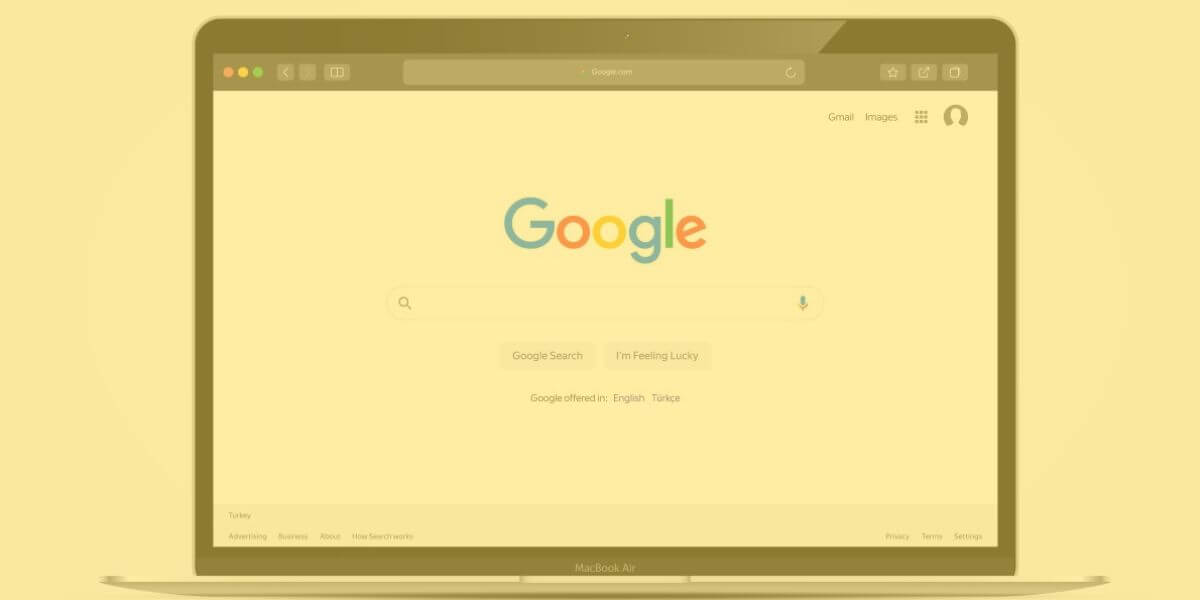Lower your internet bill
61% of people overpay for their internet.
Are you one of them?
Unlock exclusive offers in your area!
Call now
[tel]Enter zip code
1 Star is Poor & 5 Stars is Excellent.
* Required

Written by Rosslyn Elliott - Pub. Mar 08, 2024 / Updated Mar 08, 2024
Table of Contents
Are you happy with your Internet service?

About the author
Let’s face it – a collection of internet cookies is not as fun as a pile of real cookies. But internet cookies are very important to your privacy.
Cookies are bits of data that websites save on your browser. The cookies show the websites what you like, track what you do, and customize your online experience.
Cookies can be helpful, but they can potentially invade your privacy and online security.
In 2024, Google will stop allowing third-party cookies on its Chrome browser [1].
This means that many websites and advertisers won’t be able to use cookies to gather information about your online activity.
In the past, companies have used cookies to show you customized ads. They won’t be able to do that anymore.
What does this mean for you as someone who uses the internet? How will this change your online security and privacy? And what will happen to the websites and businesses that need cookies to make money and develop new features?
Read on to find out how cookies work, why Google is getting rid of them, and what to expect when they are gone.
Cookies are small text files that websites save on your browser when you visit. The cookies store information such as your username, password, preferences, shopping cart items, and browsing history.
Cookies help websites to identify you when you return on another visit. Websites can personalize your online experience based on your interests and needs.
For example, when you go to Amazon, cookies recall what products you viewed, what you put in your cart, and what you purchased. This helps Amazon to show you relevant recommendations, offers, and reviews.
Cookies can also be used for analytics and advertising purposes. Websites and advertisers can use cookies to track your online behavior, such as what websites you visit, what links you click, and what ads you see.
This tracking helps companies show you ads that are more likely to interest you.

Internet cookies have two main categories: first-party cookies and third-party cookies.
First-party cookies are made and controlled by the website you actually visit. They are usually necessary for the website to work properly, and they can only be accessed by the website that made them. For example, when you sign into your email account, a first-party cookie saves your login information and keeps you signed in.
Third-party cookies are made and controlled by other parties, such as advertisers, analytics tools, or social media platforms. They are usually used for tracking and advertising, and they can be accessed by multiple websites that use the same third-party service.
For example, when you visit a news website, a third-party cookie from Google Analytics may collect information about your visit, such as how long you stayed, what pages you viewed, and where you came from. This information can be used by the news website and Google to improve their services and show you relevant ads.
Third-party cookies are the ones that Google intends to stop on its Chrome browser. Third-party cookies are often considered invasive and unwanted by many internet users. Many people do not like the idea of being tracked and targeted by advertisers across the web.
Third-party cookies can also create security and privacy risks, as they can be used by hackers, scammers, or malicious actors to steal your personal information, identity, or money.
Internet cookies are a way of storing information on your browser and returning that information to the website or service that made the cookie.
When you go to a website that uses cookies, the website asks your browser to save a cookie on your device. The cookie has a unique identifier, and sometimes other information, such as your preferences or settings. The browser saves the cookie on your device and reveals the cookie to the website whenever you visit it.
For example, when you go to YouTube, the website asks your browser to save a cookie on your device. The cookie has a unique identifier, and information such as your language, volume, and video quality preferences. This lets YouTube remember your preferences and settings and show you videos that are related to your interests.
When you go to a website that uses third-party cookies, the website asks your browser to save a cookie from another source, such as an advertiser, an analytics tool, or a social media platform.
The cookie has a unique identifier, and sometimes other information, such as your browsing history or interests.
The browser saves the cookie on your device and returns it to the third-party service whenever you go to a website that uses the same service.

Google is shutting down third-party cookies on its Chrome browser for a number of reasons.
Google has to follow the increasing rules and requirements for online privacy and security. Many countries and regions have passed laws that require websites and advertisers to get users’ permission before collecting and using their personal data.
Users who are worried about their online privacy and security often choose to block or remove third-party cookies on their browsers.
Google is trying to please the changing tastes of internet users. Many users do not use Chrome because they choose to use ad blockers or browsers that do not support third-party cookies, such as Safari [2].
According to reports by StatCounter, Chrome’s market share of web browsers dropped from 69.94% in January 2020 to 65.31% in February 2024, while market share for Safari market share rose from 16.56% in 2020 to 18.3% in February 2024 [3].
Google says that third-party cookies are not the best way to deliver relevant and useful ads to users, and that they create problems and challenges for advertisers, publishers, and users alike.
Google argues that by shutting down third-party cookies, it can create a more privacy-friendly and user-focused web. Google claims that users will have more power over their data, and advertisers and publishers can use different methods and technologies to deliver better and more efficient ads.

Some countries have new privacy laws
Google first said that it would turn off cookies in January 2020. Over the years, the deadline has been pushed back several times. Only now, in 2024 is Google actually turning off cookies. They have stated that they will do so in phases.
On January 2, 2024, Google turned off cookies for 1% of its users.
Third -party cookies for all users will be phased out by the end of 2024 [1].
Google will deploy its suggested alternatives to third-party cookies, such as the Privacy Sandbox, in phases.
Google is working on a series of initiatives and technologies called the Privacy Sandbox, which are meant to replace third-party cookies and to address the challenges and needs of the online ecosystem.
The Privacy Sandbox’s goal is to protect users’ privacy and security, while also allowing advertisers and publishers to offer relevant and effective ads and content.
The Privacy Sandbox has several components, such as:
These new types of tracking will allow advertisers to customize their ads, but without releasing data on you individually [4].

Privacy Sandbox replaces third-party cookies
Internet security will be affected by Chrome’s decision to turn off third-party cookies, both in good and bad ways.
On the good side, turning off third-party cookies will lower the chances of data breaches, identity theft, phishing, malware, and other cyberattacks.
By restricting the amount and kind of data that websites and advertisers can get and use from users, turning off third-party cookies will improve users’ privacy and security, and give them more power and clarity over their data.
On the bad side, turning off third-party cookies will also pose new problems and risks for internet security, especially during the transition period.
For instance, turning off third-party cookies may harm the functionality and performance of some websites and services that depend on them, such as online banking, e-commerce, and social media.
Some websites and services may ask users to create accounts or provide other forms of verification, which may raise the danger of phishing or spoofing.
Some websites may also use different technologies to track and target users, such as fingerprinting or supercookies, which may be more difficult to spot and stop.
So, turning off third-party cookies on Chrome will not automatically ensure internet security. Instead, you will need to stay mindful of the potential benefits and challenges that come from this change.
You may need to upgrade your browsers and devices, change your settings and preferences, and select your websites and services wisely. You will also need to monitor your data and activity.
Use tools and resources that can help you safeguard your privacy and security, such as VPNs, encryption, and antivirus software.

Fingerprinting for privacy?
Chrome’s decision to turn off third-party cookies will have a big impact on the internet, affecting users, advertisers, publishers, and other players.
Here are some of the things you can expect when cookies are gone:
1) You will see more generic ads and content because advertisers will have less data about your online behavior and preferences. You may also see more ads and content based on your location, device, or browser.
2) You will have more options and control over your data and activity. Websites and advertisers will have to provide you with settings and choices. They will also have to explain to you how they collect and use your data.
3) You will notice changes in how some websites work that previously used third-party cookies. There may be new processes for your online banking, e-commerce, and social media. You may have to create new accounts or provide other forms of verification to access some websites and services. You may also need to update your browsers and devices.
Turning off third-party cookies on Chrome is a major change that will affect how you experience the internet. Now that you know what’s ahead, you will be ready for the pros and cons that come with the absence of cookies.
Cokie deprecation is the formal term for removing third-party cookies from browsers. Firefox and Safari have already removed their third-party cookies. Now Google is also turning off the cookies.
Google has stated that it will turn off cookies for 100% of users by the end of 2024.
There will be a transition period when cookie removal may cause you to have to learn new processes for some of your internet activities.
In some ways, third-party cookie removal will improve your privacy and security. There will still be many risks online, so you will need to stay vigilant.
If you never clean up your cookies, they might slow your browsing. But ordinarily, cookies have no noticeable effect on internet speed.
Google’s cookie removal will have no noticeable effect on your data usage. Cookies can take up some of your storage space on your home device if you don’t clean them up. But that does not affect the amount of data you use from your internet provider.

Monitor your cybersecurity
[1] Google.com. “The next step toward phasing out third-party cookies in Chrome."
[2] TheVerge.com. “Apple Safari: Full Third-Party Cookie Blocking."

About the author
Congratulations, you qualify for deals on internet plans.
Speak with our specialists to access all local discounts and limited time offers in your area.
[tel]61% of people overpay for their internet.
Are you one of them?
Unlock exclusive offers in your area!
Call now
[tel]Enter zip code